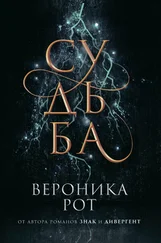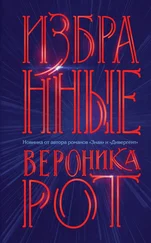Two Months Left
Samantha’s hands were still red from the cold, the skin over her knuckles taut and dry. She had gone that morning to bring supplies to the Naomi , a small fishing vessel off the coast that she had bought with the last of her money, before money lost all meaning.
She had learned the knot to moor the boat months before she got it. A bowline knot, which started with a loop in the rope, the end snaking up and down and through. The world’s most useful knot, the website had said. The internet had disappeared a few weeks later, just before the evacuation.
In the Bible story, Noah had built a boat to survive the flood, to endure. The Naomi would not survive anything. That was not her purpose.
Samantha sat down at her station and breathed warm air on her knuckles.
“I,” Dan said, sitting back from the computer screen, “would really like a smoke.”
Samantha was in the middle of a tissue ID. She stared through the magnifier at the tiny leaves of what seemed to be a clump of peat moss in an attempt to match it to the grid of images on the screen in front of her. Ambuchanania or Sphagnum were the two genera options confronting her. The Sphagnum ’s leaves, the screen told her, would have large dead cells alternating with the living ones. She needed to take a sample for the microscope.
“You don’t smoke,” she said as she got up to fetch a slide.
“I don’t smoke anymore ,” Dan said. “I quit when I was twenty.”
Clean slide in hand, Samantha sat again and reached for the iodine. “And now that you work in a confined space with other people, you suddenly want to do it again?”
“Well, consider this,” Dan said. “Not only is it against the rules to smoke on either Ark ship, there’s also not gonna be tobacco. Not the fresh stuff, anyway. So isn’t it our obligation to experience everything Earth’s plants have to offer for as long as we can?”
She used a scalpel to scrape a sample from one of the tiny leaves. Her hands trembled when she had to do delicate work like this, but she was used to it now after taking an incalculable number of samples from an endless supply of plants. She put the sample down in the iodine, dabbing a few times to get it loose, and covered it with a slip. The iodine-stained sample spread wide beneath the glass.
She put the slide on the microscope stage and secured it with the clips. Her hand went automatically to the coarse-focus wheel to bring the stage closer to the lens. She realized, as she brought her eye to the eyepiece, that Dan was waiting for an answer.
“I’ve never smoked,” she said.
“Well,” he said, “there’s no better time to try.”
Dan had shaved that morning, and there was still a tiny square of red-spotted toilet paper on his neck from where the razor had nicked him. He had broad shoulders and round, perpetually pink cheeks. He’d been eating nonstop since Earth was evacuated of most of its inhabitants. There would be plenty of time to get trim again on a spaceship hurtling toward Earth the Sequel, as he liked to call it, eating bland rations.
“Sure,” Samantha found herself saying. “Why not?”
When she was seven years old, there was a windstorm that knocked all the leaves off the maple tree in the backyard. She woke up to bare branches and a lawn blanketed in orange, yellow, and red. Her father had spent all Saturday raking them into a giant pile at the far end of the yard, and then, as the sun set, he had set them on fire.
She had avoided him all day—it wasn’t smart to interrupt her dad in the middle of a chore, or in the middle of anything, really—but when she saw that he was just standing there next to the leaf pile, she had put on one of his old coats and joined him. The sleeves fell over her fingers, keeping them warm, and the elastic hem brushed her kneecaps.
“Don’t get too close,” he said when he saw her.
She stuck her hands out of the sleeves to feel the heat from the fire against her palms. The patch of woods behind the house was bare of leaves, too, except the pines, heavy with needles. Her father had told her, the year before, that every winter she saw would be one of Earth’s last winters. He had fallen asleep a little while later with a glass of scotch balanced on his lap.
She looked up at the silhouettes of the branches against the color-rich sky. The wind shifted, and flakes of ash blew toward her face, pricking at her eyes. One landed on her lip, and she tasted it with her tongue. It tasted like burned leaves curling up at the edges in the flames, like musty old coats, like breaths you could see unfurling.
That, Samantha thought, standing bundled up near the back door with Dan, was how cigarettes tasted too.
The eyepiece was cold against her eye socket. Everything was cold in Svalbard, an archipelago north of the Arctic Circle that was technically part of Norway. In the last several years, as the tenants of Earth prepared to evacuate, Svalbard had seen an influx of scientists from all over the world, thanks to its existing store of genetic material in the Svalbard Global Seed Vault, which had already housed more than one million samples when the apocalyptic news came.
Borders had stopped mattering after the asteroid Finis was discovered twenty years ago. Everyone was just an Earthling now.
The global scientific community had begun their work right after Finis’s discovery: preserve as much genetic material from Earth as possible before the catastrophic collision occurred. They had sent researchers out into the world with new technology for preserving live plants and animals, and they had collected hundreds of thousands of samples in facilities all around the world. At the same time, they had constructed two massive storage ships, one in Australia and one in Svalbard— Ark Flora and Ark Fauna , they were called—and began cataloging all the data they had received, and would still receive, until the very end. There had been talk, in the beginning, of simply loading all the samples onto the ships and analyzing them later. But the space on the ships had been limited, and there were too many repeat samples. Better to get one hundred unique specimens, the leader of the Ark Project had said, than three hundred duplicates.
Ark Flora and Ark Fauna would depart in two months’ time, with a narrow window of escape before the asteroid hit. They would join the other Earth evacuees en route to Earth the Sequel (formally known as Terra). None of the people on board would see the new planet in their lifetimes, though their children would.
Samantha hadn’t been involved in the Ark Project from the beginning, or even the middle, really. She had joined the effort when the call for End Days workers came. The qualifications had been a master’s-level degree in a related field, no criminal record, no history of mental illness, and no living family. No one to lose if Finis showed up early, or if the ship failed to launch.
“Orphans, gather round!” The shout came from the doorway of the laboratory at the same time every day: 11:45 a.m. The young woman to whom it belonged, Averill, was small, slim through the torso, and thick through the hips and thighs. She had learned as a girl to speak only in her chest voice, so she could be heard over her two brothers, and the habit had stuck.
Читать дальше
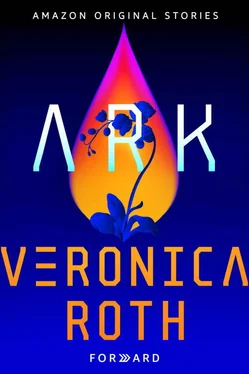


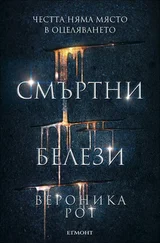
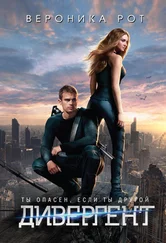
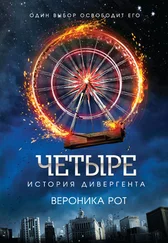
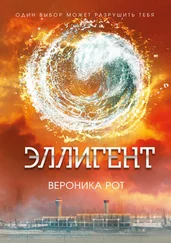
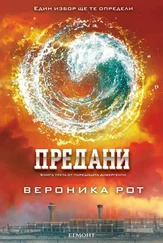
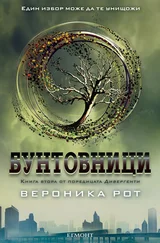
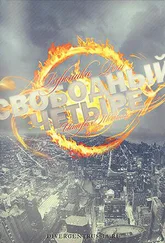
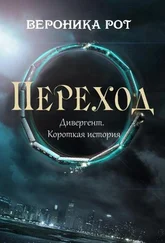
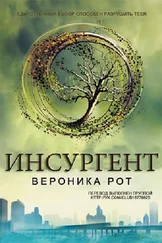
![Вероника Рот - Избранные [litres]](/books/397971/veronika-rot-izbrannye-litres-thumb.webp)
